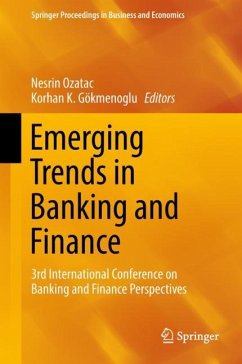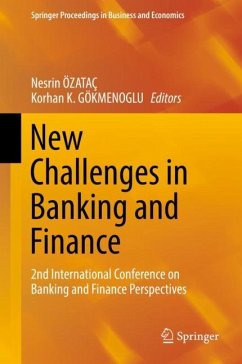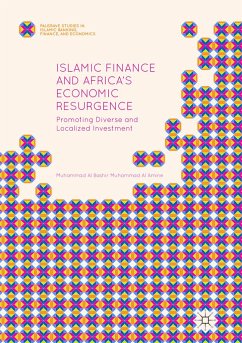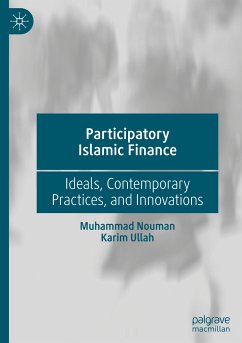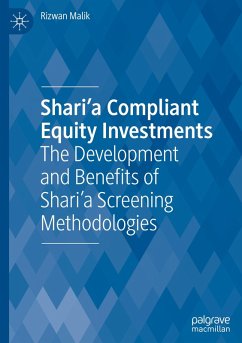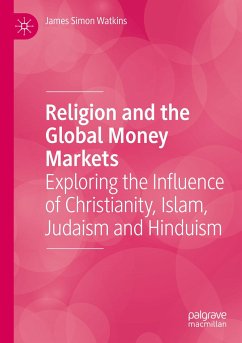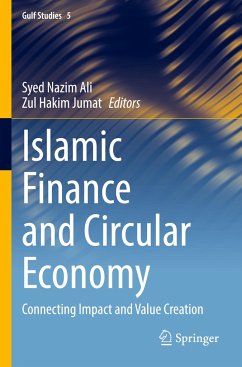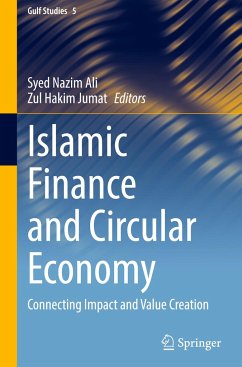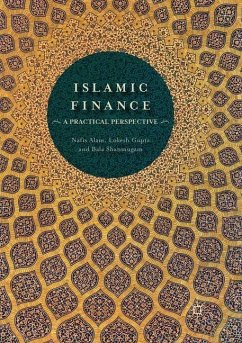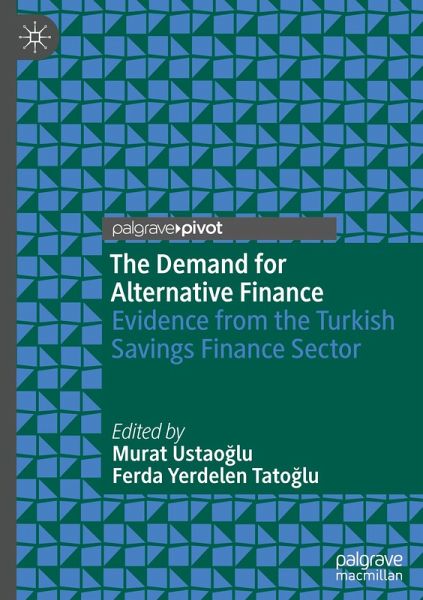
The Demand for Alternative Finance
Evidence from the Turkish Savings Finance Sector
Herausgegeben: USTAOGLU, Murat; Yerdelen Tatoglu, Ferda

PAYBACK Punkte
15 °P sammeln!
This book explores the Savings Finance model in Turkey, an interest-free financial system grounded in interest-free finance principles that came into being in the 1990s as an ethical alternative to conventional banking. The study examines the operational mechanisms of the model, particularly the collective savings pools for housing, vehicles, and workplaces. These pools circumvent the use of fixed interest rates by employing profit and loss sharing and managed fund pools. The book integrates theoretical analyses of interest-free finance and global models, such as ROSCAs, with empirical data fr...
This book explores the Savings Finance model in Turkey, an interest-free financial system grounded in interest-free finance principles that came into being in the 1990s as an ethical alternative to conventional banking. The study examines the operational mechanisms of the model, particularly the collective savings pools for housing, vehicles, and workplaces. These pools circumvent the use of fixed interest rates by employing profit and loss sharing and managed fund pools. The book integrates theoretical analyses of interest-free finance and global models, such as ROSCAs, with empirical data from a nationwide survey of 662 participants. It assesses factors including public trust, theological sensitivities, and demographic influences on financial preferences.
The book discusses the sector's legal framework, operational mechanisms (including inflation-protected and lottery-based models), and its socio-economic impact, highlighting challenges like balancing religious norms with cost competitiveness. It also assesses awareness gaps and strategies to enhance institutional credibility. The book's comprehensive collection of cross-tabulated demographic data and quantitative analyses renders it a valuable resource for scholars of interest-free finance, economists, policymakers, and professionals interested in ethical financial systems. It offers critical insights for those exploring how cultural, religious, and regulatory dynamics shape alternative finance in emerging markets.
The book discusses the sector's legal framework, operational mechanisms (including inflation-protected and lottery-based models), and its socio-economic impact, highlighting challenges like balancing religious norms with cost competitiveness. It also assesses awareness gaps and strategies to enhance institutional credibility. The book's comprehensive collection of cross-tabulated demographic data and quantitative analyses renders it a valuable resource for scholars of interest-free finance, economists, policymakers, and professionals interested in ethical financial systems. It offers critical insights for those exploring how cultural, religious, and regulatory dynamics shape alternative finance in emerging markets.



